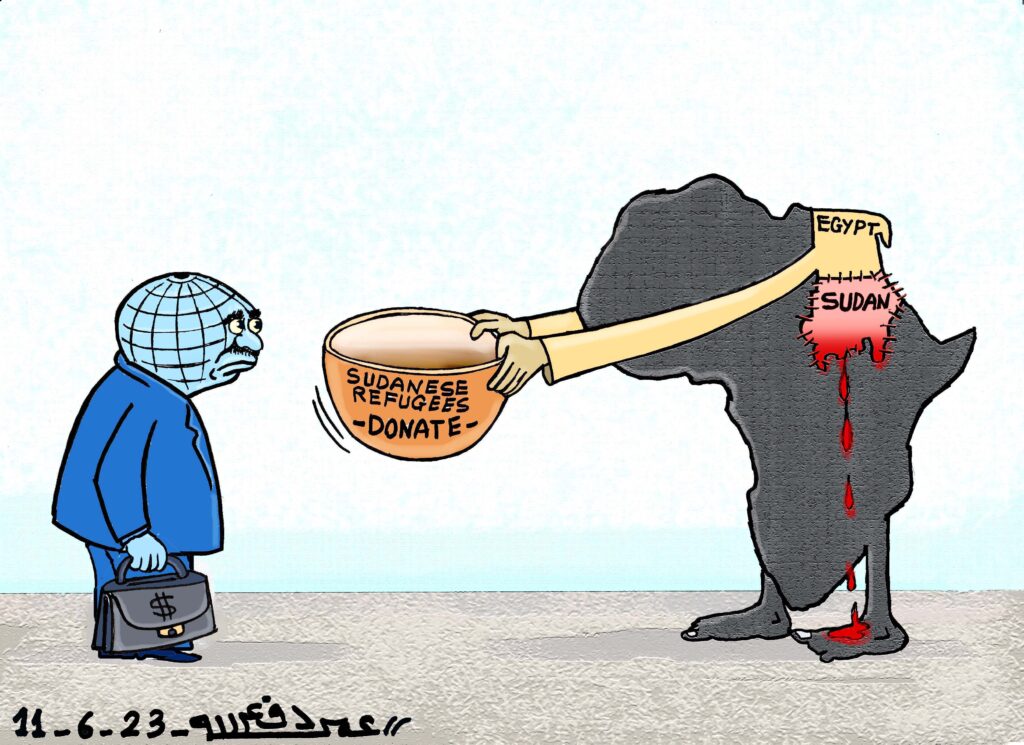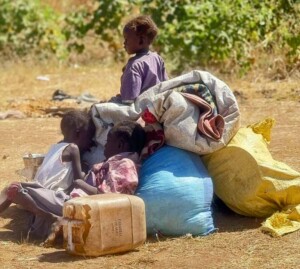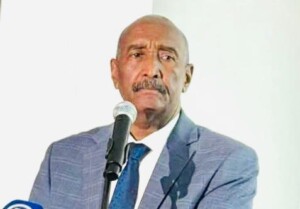Call for Egypt to halt expulsion of Sudanese journalists

Sudanese refugees in Egypt asking for aid (Cartoon by Omar Dafallah / RD)
International journalism and press freedom advocacy group Reporters Without Borders has appealed to the authorities in Egypt halt the imminent deportation of four Sudanese journalists who were arrested in September, and are being held in a refugee centre in Aswan, on the border between Egypt and Sudan. The group calls on Egypt to release them, and guarantee their protection.
In a statement this week, Reporters Without Borders points out that Sudan is a dangerous zone for journalists, and that the four Sudanese journalists, who they do not name, would face grave danger and reprisals if returned to Sudan. The organisation says that the group was arrested on 23 September while recording an interview with Mohamed Hassan Bouchi, a Sudanese human rights defender exiled in Egypt, for the Sudanese TV channel Sudan Bukra.
The journalists, who hold temporary asylum seeker registration cards issued by the United Nations High Commissioner for Refugees (UNHCR), had fled their war-torn country, victims of abuses by both warring parties. With the help of their lawyers, they have battled numerous chaotic judicial and administrative procedures since their arrest, oscillating between the threat of deportation to Sudan and the hope of finding refuge in a safer country, such as Uganda, the advocacy group says.
‘We are beginning to fear that their status as journalists is being used against them…’
– lawyer Iqbal Ahmed Ali
Yet the hope of refuge was extinguished on 22 October, when the journalists were placed in a military prison in the city of Aswan to facilitate their deportation by land, according to their lawyer Iqbal Ahmed Ali. “The persistence of the concerned parties acting against these journalists is surprising, to the point that we are beginning to fear that their status as journalists is being used against them. After nearly a month in detention, what we are seeing is a lack of coordination between the UNHCR and the Egyptian authorities,” she says.
‘Sending these media professionals back to Sudan would not only constitute a flagrant violation of their right to safety but would put them in grave danger, given the reprisals they would be exposed to…’
– Jonathan Dagher, Head of Reporters Without Borders Middle East Desk
Jonathan Dagher, Head of Reporters Without Borders Middle East Desk: “These four refugee journalists should not be detained or deported for doing their jobs: covering a war they can no longer document from their home country due to the imminent danger to their lives. Sending these media professionals back to Sudan would not only constitute a flagrant violation of their right to safety but would put them in grave danger, given the reprisals they would be exposed to. We call on the Egyptian authorities to halt the deportation procedure. These journalists must be released and their protection guaranteed,” he says.
Egypt ranks 170th out of 180 countries in the annual World Press Freedom Index published by Reporters Without Borders for in 2024. Sudan rates 149th on the same index, however daily reports from war-torn Sudan, and the recent experience of Radiuo Dabanga, indicate that it has become almost impossible for journalists anywhere in the country to report freely.
On Monday, Rashid Saeed, Radio Dabanga’s Team Leader, Verification and News Gathering, emphasised during a panel discussion at the Free Press Live 2024 event at in The Hague, the Netherlands: “Since the outbreak of the current conflict between the Sudan Armed Forces (SAF) and the paramilitary Rapid Support Forces (RSF) in April 2023, 90 per cent of the infrastructure of media institutions has been destroyed, journalists have been killed, targeted, detained, tortured, or forced to flee abroad… We can be independent, but we cannot be neutral, and our priority must be to bring a stop to the war in Sudan.”











 and then
and then